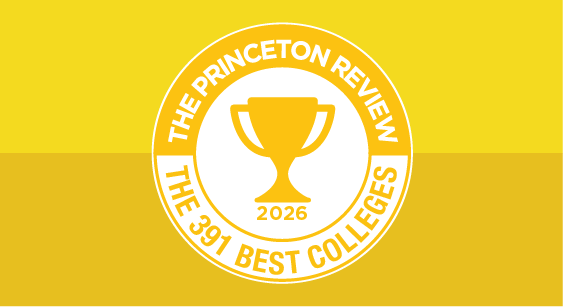
When to Study for the AP Exams
Advanced Placement (AP) is a program that can earn you college credit while you’re still in high school. In order to earn this credit, in most cases, you need to obtain a high enough score on an AP Exam. While most students take a corresponding AP course in school, it is possible to sit for an AP Exam without taking the class. Regardless of whether you’re taking the course that goes with an AP Exam, you still want to plan to study for the exam itself.
When Are AP Exams?
AP Exams happen during May (toward the end of the school year in North America), typically during the first two weeks of that month. There are make-up exam periods later in May, but the circumstances in which you can take those exams are limited. For a given AP Exam, everyone everywhere takes the same subject on the same day.
Because AP Exams are designed to be taken toward the end of the corresponding AP courses, most students will have had almost a full school year’s worth of time with the materials. However, not every school will run these courses as full-year courses, especially in schools with block scheduling. Furthermore, as mentioned, some students do take AP Exams without taking the course.
Since AP Exams are designed to test an entire year’s worth of material, they’re quite different than most tests you take in high school, which tend to focus on only a few weeks of content. Additionally, AP Exams are standardized exams featuring both multiple-choice and free-response questions. These differences from other school tests, combined with the stakes of the exams, mean that no matter the schedule of the course you’re taking, you will want to spend time studying for the AP Exam.
When to Start Studying for AP Exams
AP Courses cover the content of introductory-level college courses, and it is best to start studying for AP Exams around August or September. This doesn’t mean, however, that you should be focusing on the AP Exams themselves. Rather, you want to start learning the content and skills that will be tested on the AP Exams.
If you’re in an AP class at school, great! Do what you need to do to be successful in the class. Because AP courses are designed to be college-level classes, you will likely find that they are more challenging and more work than your other courses. You may want to consider a tutor to help you keep on track and learn the material you may be struggling with. Additionally, The Princeton Review’s AP Prep books are a great supplement to what you’re learning in class.
If you’re self-studying for an AP Exam, you have a challenge ahead. You’ll need to learn the content of a college-level course AND prepare for the AP Exam. The summer before the AP Exam, determine how you’ll learn this material. Consider taking a course online or through a local college; you can often audit courses for a reduced fee (or free!). You should look for a college-level textbook for the course related to the AP Exam you’re taking – local colleges or friends taking the AP course can give you some recommendations. Since preparing for an AP Exam on your own can be daunting, consider taking a course online or through a local college; you can often audit courses for a reduced fee (or free!). And consider tutoring and The Princeton Review’s AP Prep books as well.
When to Really Start Studying for the AP Exams
It is necessary to learn the content of the AP course in order to be successful on the AP Exam. However, to set yourself up for the best score, you’ll want to also prepare for the AP Exam itself. AP Exams are standardized tests, and like any standardized test, you can do better by learning how to take the test.
As with other standardized tests that you’ll take in high school, AP Exams take about two to three months of preparation to maximize success. Therefore, it is recommended that you start preparations for the AP Exams in February or March. By this time, you should have mastered most of the content and skills necessary for the exam. Now, the goal is to learn how to show off this mastery on the AP Exam.
How to Study for the AP Exams
First, take a practice test. The Princeton Review's AP Prep books include practice tests and many offer additional online practice tests, as well. You can also find practice tests through the College Board’s AP portal. By taking a practice test under timed conditions, you’ll start to gain experience with what’s on the AP Exam and how the test is organized. Review your test and identify the areas you need to work on.
Second, start reviewing the areas that you need to brush up on to be successful. The Princeton Review’s AP Prep books are a great source. The Princeton Review also offers a variety of courses that can help you prepare for the AP Exam, depending on your needs and timeline. You may also want to take advantage of The Princeton Review’s one-on-one tutoring with experts in both the content and the test-taking strategies that help ensure a high score. Chat with an Enrollment Advisor to discuss the best options for you.
Third, continue to practice. In addition to practice tests, work on practice AP Exam questions, especially in those areas in which you still have room for improvement. Don’t neglect Free Response Questions – these are typically worth around half of your AP score; each exam looks for something specific, and improving on one element of these questions often helps with all the questions on a given exam.
AP Exams are a snapshot of the skills and content you’ve learned over the school year leading up to May. These roughly three-hour tests can earn you college credit or placement, which makes them potentially very beneficial (saving you money on courses at college or helping you get started on higher- level classes sooner). By knowing when to study for the AP Exams, you’ll maximize your potential to get a great score.
Explore Colleges For You
Connect with our featured colleges to find schools that both match your interests and are looking for students like you.
Get Started on Athletic Scholarships & Recruiting!
Join athletes who were discovered, recruited & often received scholarships after connecting with NCSA's 42,000 strong network of coaches.
Best 391 Colleges
170,000 students rate everything from their professors to their campus social scene.



